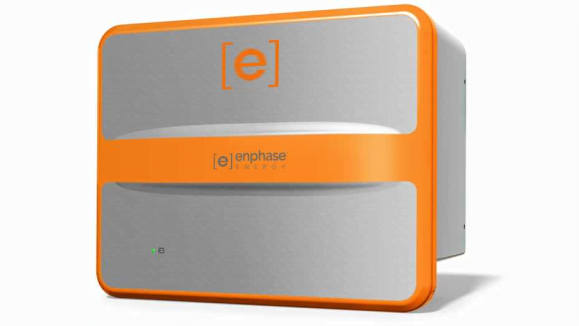An interesting new player is set to enter the emerging home energy storage arena in the shape of the Enphase Home Energy Solution. Enphase is billed as the world’s first integrated system that allows home users to store, monitor and manage their rooftop-generated solar electricity, while controlling their overall electricity consumption. The new product will be piloted in Australia from December 2015.
The system, (which was clearly named by engineers) provides a modular AC battery array and a networking hub that connects to a cloud-based monitoring app.
“Every other solution on the market that we know of is essentially just a battery,” Enphase Energy’s Asia-Pacific managing director, Nathan Dunn, told Gizmag. “This means you’d have to add additional components to convert the power supply to AC, and additional software to monitor the battery usage. All of that requires a lot of complex engineering. We’re offering a complete solution that can be essentially a plug and play exercise.”
The wall-mountable Enphase AC Battery measures just 390 x 325 x 220 mm (16 x 13 x 9 in) and weighs 25 kg (55 lbs). Each battery incorporates a bidirectional microinverter and provides 1.2 kW hours of energy and 275W/500W power output. It has an ambient temperature range of -20°C to 45°C (-4° to 113° F) and a limited warranty (> 80% capacity) for up to 10 years or 7300 cycles.
“We’ve partnered with ELIIY Power, a Japanese battery provider to develop a battery based on Lithium Iron Phosphate chemistry,” said Dunn. “This is an incredibly safe technology with a prismatic cell format that is very resilient to high temperatures and trauma events.”
According to Enphase, a hypothetical home user with a PV array may choose to install the system in three stages.
Stage one: Install Enphase Envoy-S Metered, the networking hub of the system. This device – around the size of an iPad – will send you information via the company’s MyEnlighten app. You can then start obsessing over how much energy your PV system is generating (and when), and how much energy your household is drawing from both your PV system and the grid throughout the day. This shows you how many storage batteries you may need.
Stage two: Start with two or three Enphase AC Batteries and have them installed in series to start building towards the battery capacity you need.
Stage three: The system will automatically start optimising your PV energy usage – shifting it to batteries when you’re generating more power than you use, and drawing electricity back from the batteries during peak usage periods. You can then start mixing things up – change your habits, or add more batteries and solar panels – to find ways to further reduce your electricity bill.
Enphase has announced pricing for the battery at AUD$1,150 (US$817) per kilowatt hour for volume purchases by direct customers in the Australian market, with a margin to be applied by partners.
There’s no denying that solar energy isn’t a cheap prospect yet, but with storage and efficiency still the industry’s biggest stumbling blocks, it will be interesting to see how the system goes on the market.
Source: Enphase












